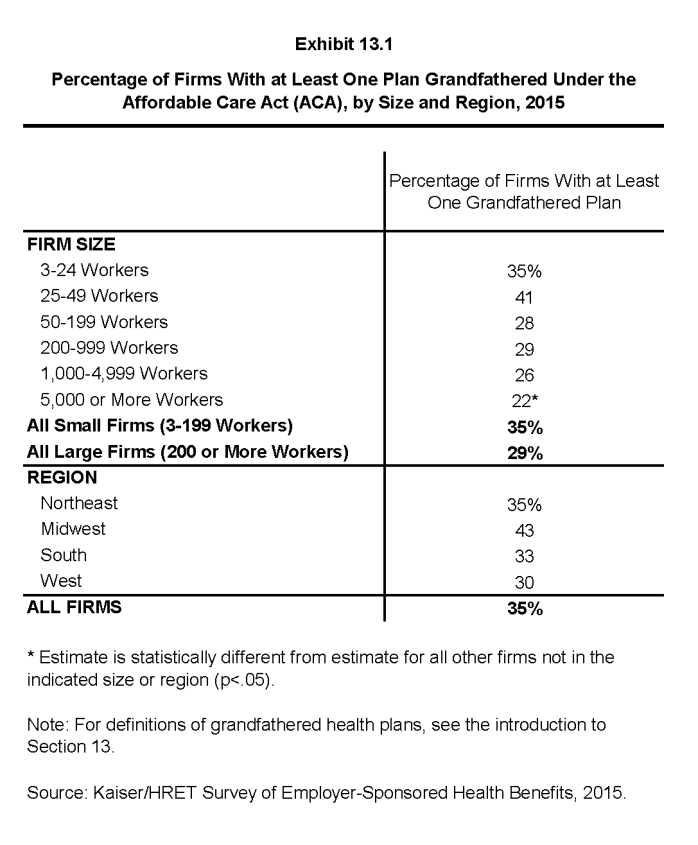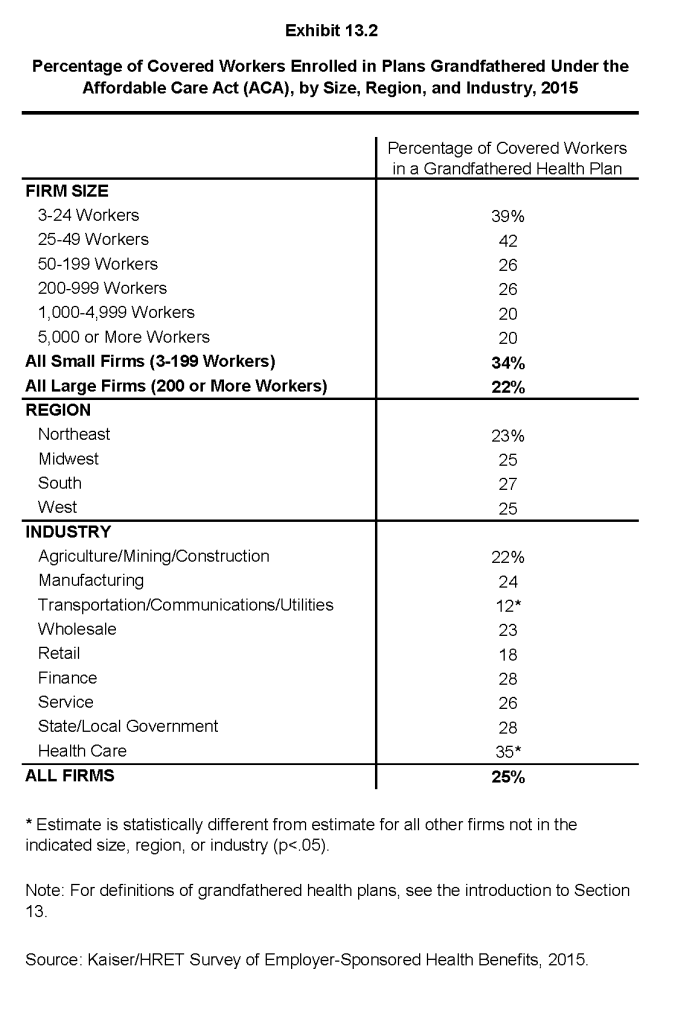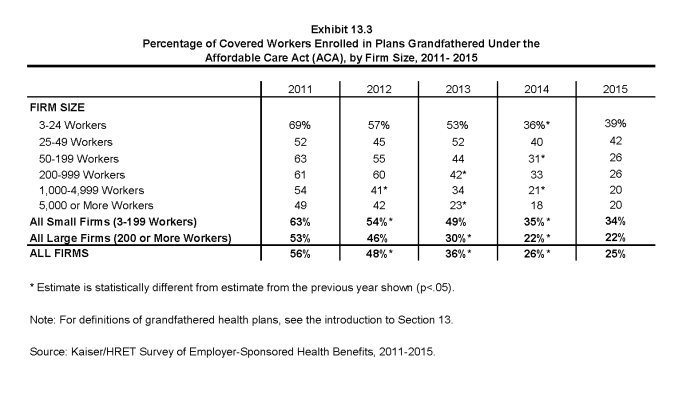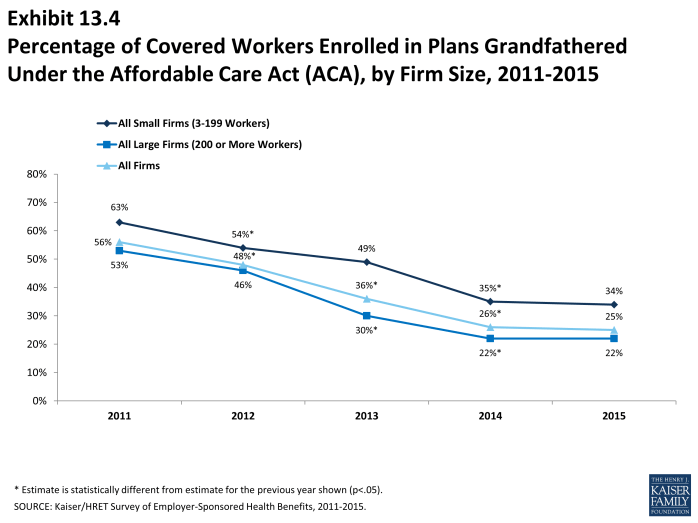2015 Employer Health Benefits Survey
Section Thirteen: Grandfathered Health Plans
The Affordable Care Act (ACA) exempts certain health plans that were in effect when the law was passed, referred to as grandfathered plans, from some standards in the law, including the requirement to cover preventive benefits without cost sharing, have an external appeals process, or comply with the new benefit and rating provisions in the small group market. In 2015, 35% of firms offering health benefits offer at least one grandfathered health plan, and 25% of covered workers are enrolled in a grandfathered plan.
In the employer-sponsored market, health plans that were in place when the ACA was enacted (March 2010) can be grandfathered health plans. Interim final rules released by the Department of Health and Human Services (HSS) on June 17, 2010, and amended on November 17, 2010, stipulate that firms cannot significantly change cost sharing, benefits, employer contributions, or access to coverage in grandfathered plans.1 New employees can enroll in a grandfathered plan as long as the firm has maintained consecutive enrollment in the plan.
Grandfathered plans are exempted from many of the ACA’s new requirements, but still must comply with other provisions, including: (1) provide a uniform explanation of coverage, (2) report medical loss ratios and provide premium rebates if medical loss ratios are not met, (3) prohibit lifetime and annual limits on essential health benefits, (4) extend dependent coverage to age 26, (5) prohibit health plan rescissions, (6) prohibit waiting periods greater than 90 days, and (7) prohibit coverage exclusions for pre-existing health conditions.2 Firms must decide whether to grandfather their insurance plans, which limits the changes they can make to their plans, or whether to comply with the full set of new health reform requirements.
In responding to the 2015 survey, some employers found it difficult to distinguish between the grandfathering provisions in the ACA from guidance issued by HHS. We would note that smaller firms in particular appear to have some confusion about whether or not they are grandfathered, likely in part because of the use of the term “grandmothered” to refer to pre-ACA plans that can be renewed under guidance issued by HHS3. Many smaller firms, even those offering a health plan in effect in March 2010, were unsure about whether their plan was grandfathered.
- The percentage of firms offering health benefits reporting that they have at least one health plan that is grandfathered is similar to last year. Thirty-five percent of offering firms report having at least one grandfathered plan in 2015, similar to 37% in 2014, but down from 54% in 2013, 58% in 2012, and 72% in 2011 (Exhibit 13.1).
- Twenty-five percent of covered workers are enrolled in a grandfathered health plan in 2015 (Exhibit 13.2). A similar percentage of covered workers at small firms (3-199 workers) and large firms (200 or more workers) offering health benefits are enrolled in grandfathered plans (34% and 22%, respectively). The percentage of covered workers enrolled in a grandfathered plan is similar to 26% in 2014, but down from 36% in 2013, 48% in 2012 and 56% in 2011 (Exhibit 13.4).
- The health care industry has the highest percentage of covered workers enrolled in a grandfathered health plan (35% in 2015) (Exhibit 13.2).




